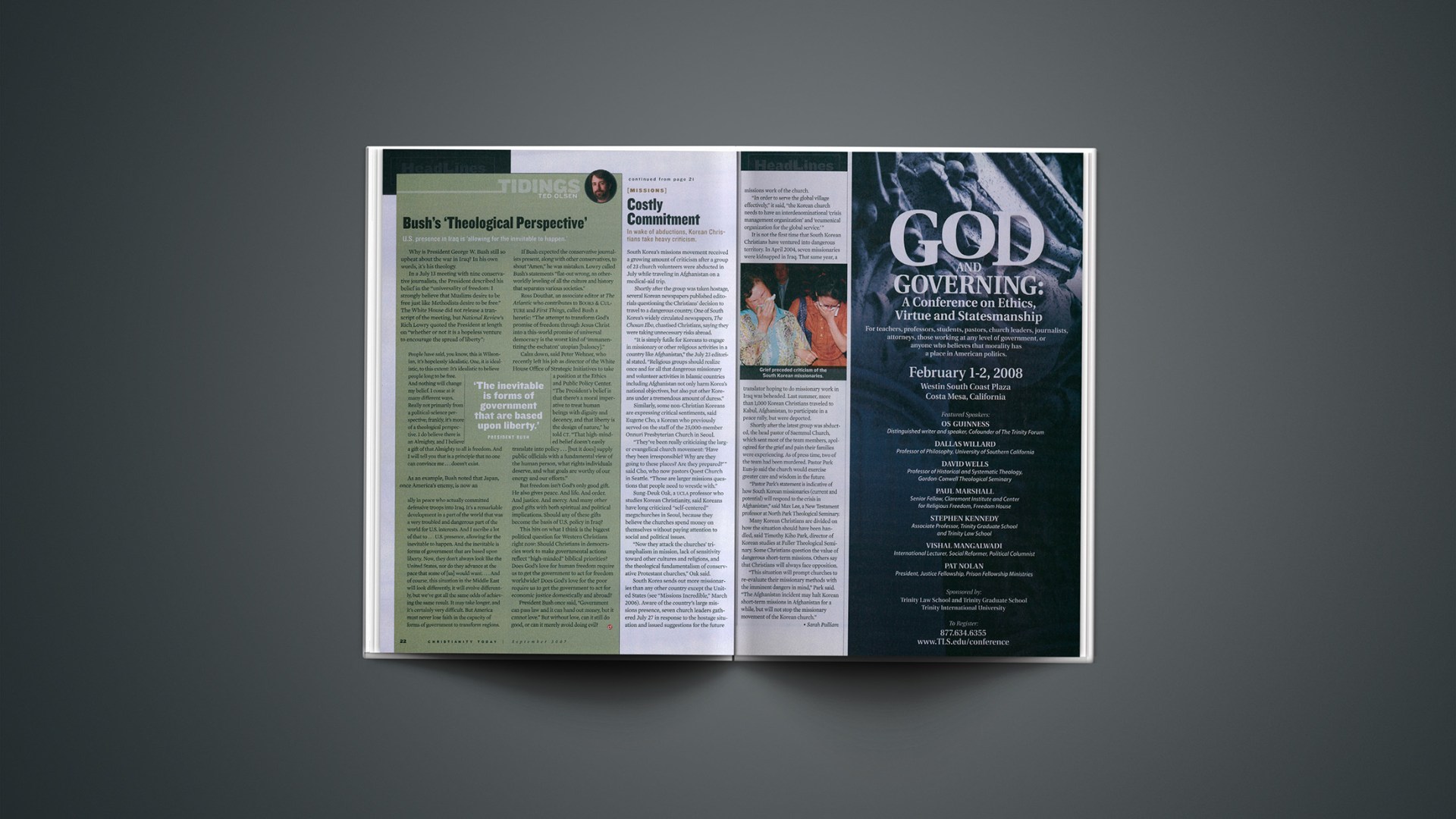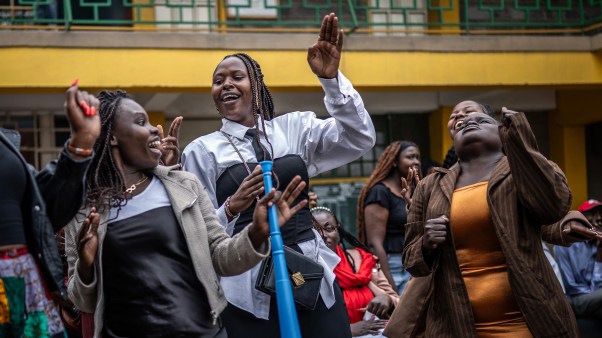South Korea’s missions movement received a growing amount of criticism after a group of 23 church volunteers were abducted in July while traveling in Afghanistan on a medical-aid trip.
Shortly after the group was taken hostage, several Korean newspapers published editorials questioning the Christians’ decision to travel to a dangerous country. One of South Korea’s widely circulated newspapers, The Chosun Ilbo, chastised Christians, saying they were taking unnecessary risks abroad.
“It is simply futile for Koreans to engage in missionary or other religious activities in a country like Afghanistan,” the July 23 editorial stated. “Religious groups should realize once and for all that dangerous missionary and volunteer activities in Islamic countries including Afghanistan not only harm Korea’s national objectives, but also put other Koreans under a tremendous amount of duress.”
Similarly, some non-Christian Koreans are expressing critical sentiments, said Eugene Cho, a Korean who previously served on the staff of the 25,000-member Onnuri Presbyterian Church in Seoul.
“They’ve been really criticizing the larger evangelical church movement: ‘Have they been irresponsible? Why are they going to these places? Are they prepared?'” said Cho, who now pastors Quest Church in Seattle. “Those are larger missions questions that people need to wrestle with.”
Sung-Deuk Oak, a UCLA professor who studies Korean Christianity, said Koreans have long criticized “self-centered” megachurches in Seoul, because they believe the churches spend money on themselves without paying attention to social and political issues.
“Now they attack the churches’ triumphalism in mission, lack of sensitivity toward other cultures and religions, and the theological fundamentalism of conservative Protestant churches,” Oak said.
South Korea sends out more missionaries than any other country except the United States (see “Missions Incredible,” March 2006). Aware of the country’s large missions presence, seven church leaders gathered July 27 in response to the hostage situation and issued suggestions for the future missions work of the church.
“In order to serve the global village effectively,” it said, “the Korean church needs to have an interdenominational ‘crisis management organization’ and ‘ecumenical organization for the global service.'”
It is not the first time that South Korean Christians have ventured into dangerous territory. In April 2004, seven missionaries were kidnapped in Iraq. That same year, a translator hoping to do missionary work in Iraq was beheaded. Last summer, more than 1,000 Korean Christians traveled to Kabul, Afghanistan, to participate in a peace rally, but were deported.
Shortly after the latest group was abducted, the head pastor of Saemmul Church, which sent most of the team members, apologized for the grief and pain their families were experiencing. As of press time, two of the team had been murdered. Pastor Park Eun-jo said the church would exercise greater care and wisdom in the future.
“Pastor Park’s statement is indicative of how South Korean missionaries (current and potential) will respond to the crisis in Afghanistan,” said Max Lee, a New Testament professor at North Park Theological Seminary.
Many Korean Christians are divided on how the situation should have been handled, said Timothy Kiho Park, director of Korean studies at Fuller Theological Seminary. Some Christians question the value of dangerous short-term missions. Others say that Christians will always face opposition.
“This situation will prompt churches to re-evaluate their missionary methods with the imminent dangers in mind,” Park said. “The Afghanistan incident may halt Korean short-term missions in Afghanistan for a while, but will not stop the missionary movement of the Korean church.”
Copyright © 2007 Christianity Today. Click for reprint information.
Related Elsewhere:
Our coverage of the hostage situation includes “South Korean Politicians Blame U.S. for Taliban Hostages,” “After Taliban Kills Two Hostages, South Korea Pleads for Compromise” (Aug. 2), “Afghanistan Kidnappers Kill Hostage as South Korea Debates Mission Work” (July 26), and “Taliban Kidnaps South Korean Christians” (July 20).
Christianity Today‘s March 2006 cover story examined the explosion of South Korean missions.
See our earlier coverage of Afghanistan and South Korea.
Recent weblogs have links to opinion pieces and editorials about Korean missions, including:
Church volunteers need to leave Afghanistan | Volunteer work is good. But in a multicultural and multi-religious age and especially in a place like Afghanistan, where there is a sharp hatred of Christianity, a deeper understanding of indigenous conditions must precede the dispatch of volunteer workers (Editorial, Chosun Ilbo, South Korea)
Korean Christians question their zeal after kidnapping in Afghanistan | The local Christian community has been caught up in a heated debate over its aggressive evangelical activities especially in Islamic countries as the news of the execution of one of the Koreans being held hostage in Afghanistan spread across South Korea Thursday (Yonhap News)
S. Korea negotiates for hostages in Afghanistan, while some resent their presence there | Park Eun-joo, a pastor at the South Korean church that sent the travelers, says it is inaccurate to describe them as missionaries. Park says his church respects Islam, and the members only went to Afghanistan to help people (Chosun Ilbo)
Hostage crisis fuels anti-Christian sentiment online | Some are fanning the flames of anti-Christian sentiment by posting insults to the victims and their families on the web (Chosun Ilbo, South Korea)
Devastating news from Afghanistan | Evangelical organizations still insist on going to the region for missionary and volunteer work. They should abandon such plans (Editorial, Chosun Ilbo)
Risky religious activities | Christians should refrain from inciting Islamic insurgents (Editorial, The Korea Times)










